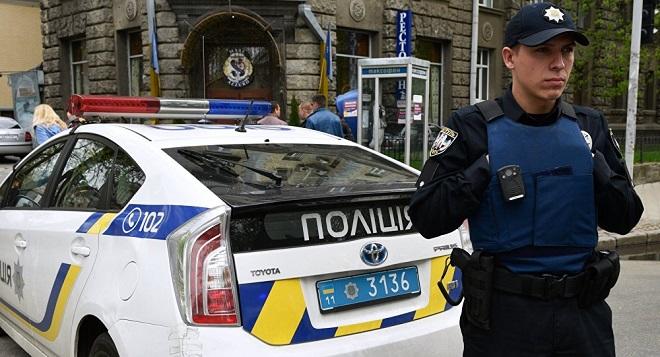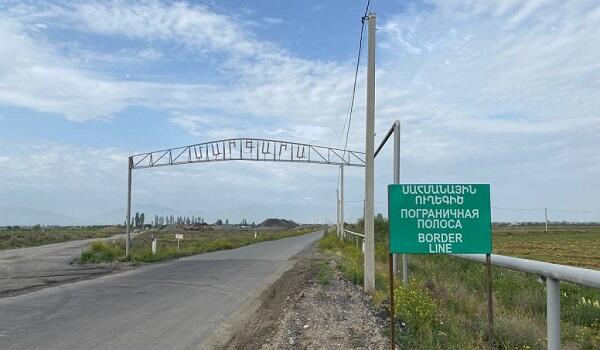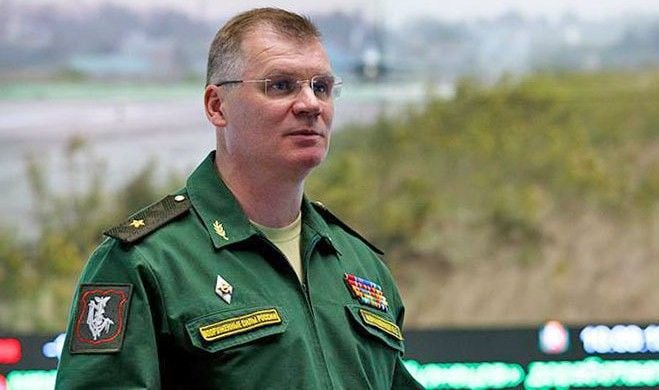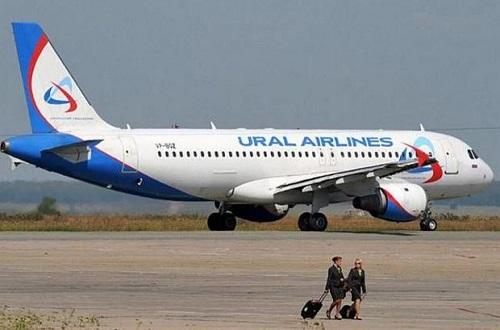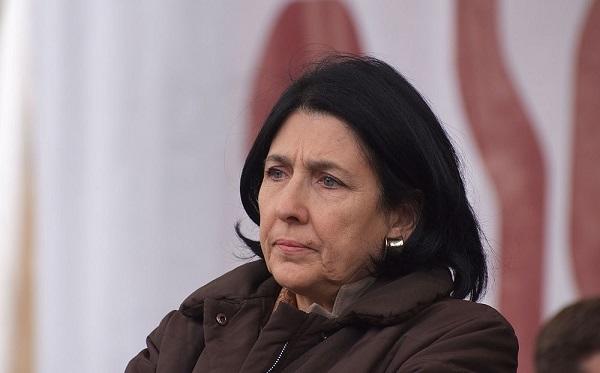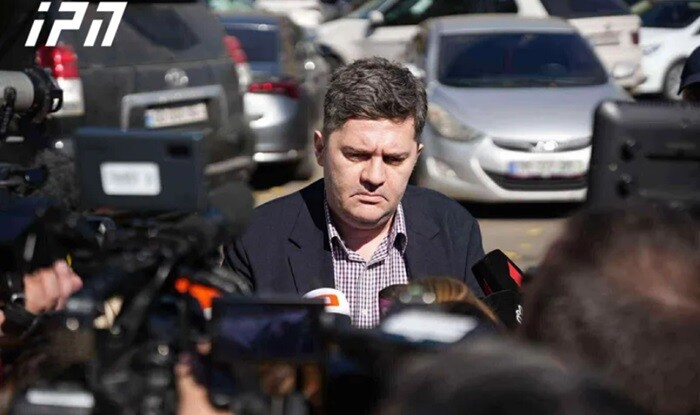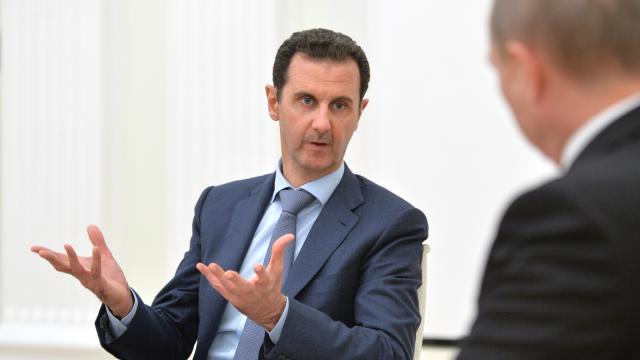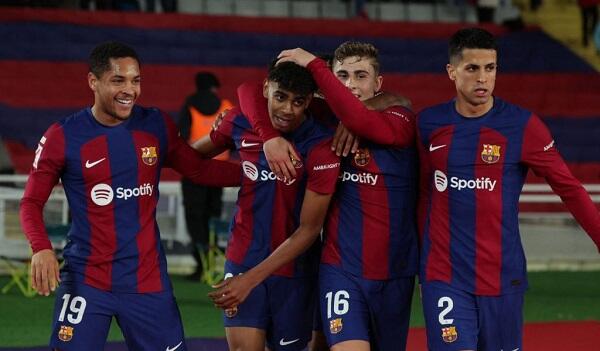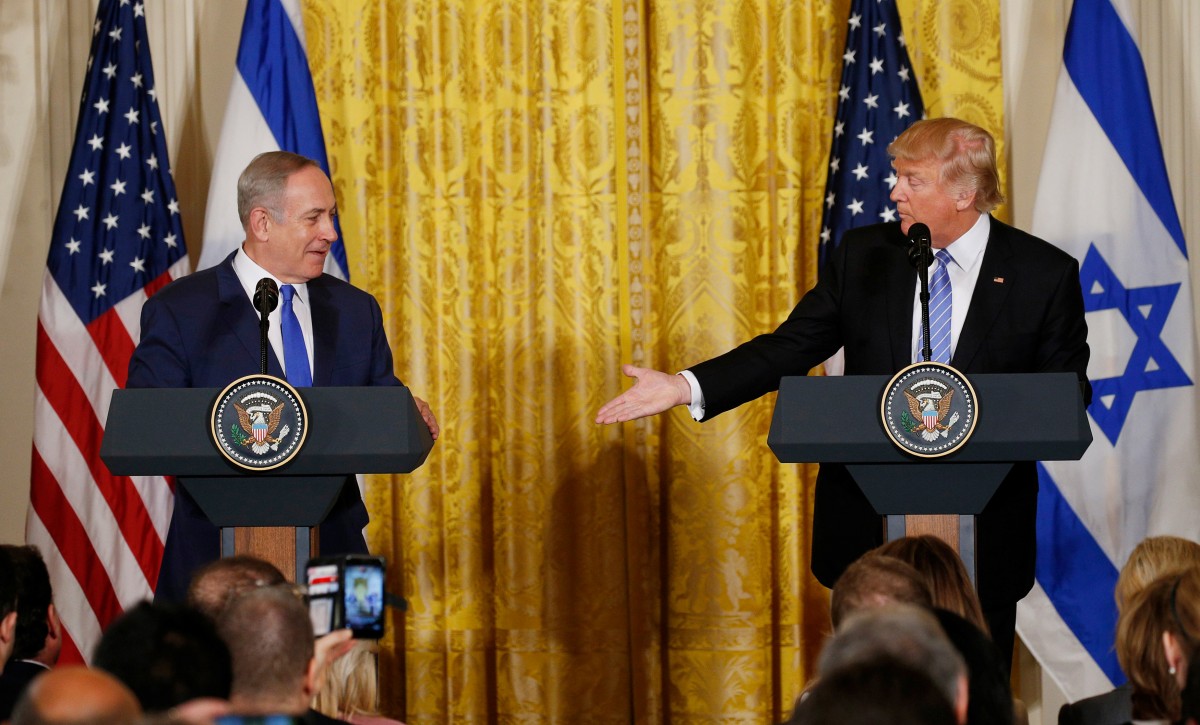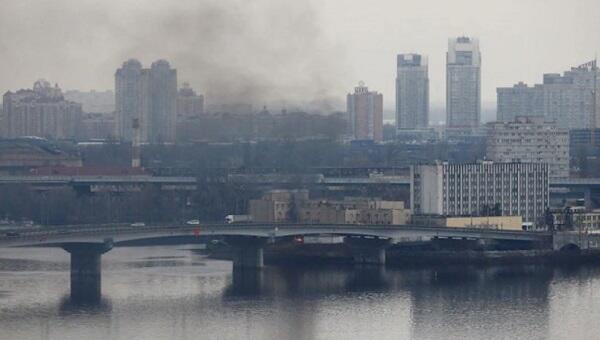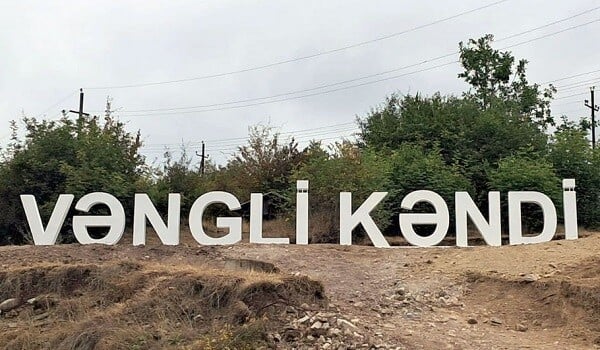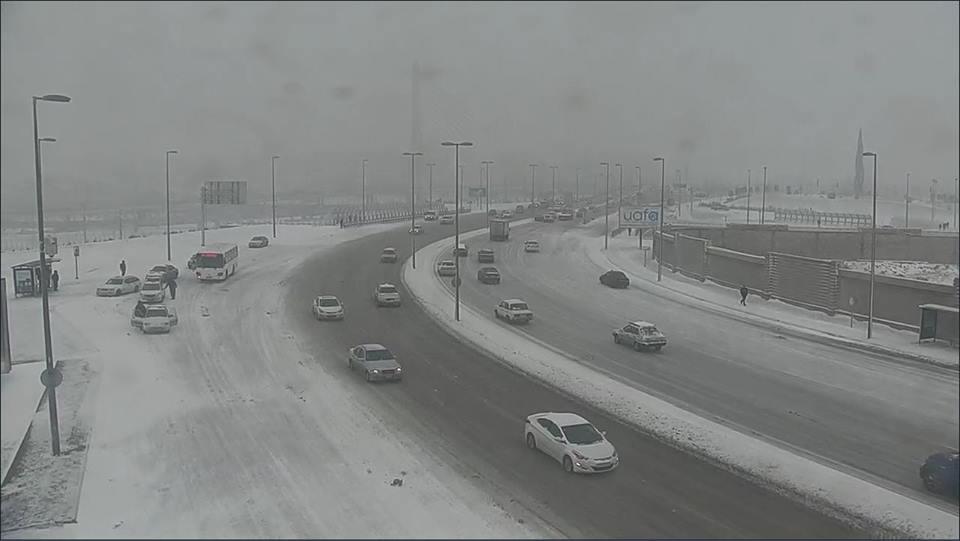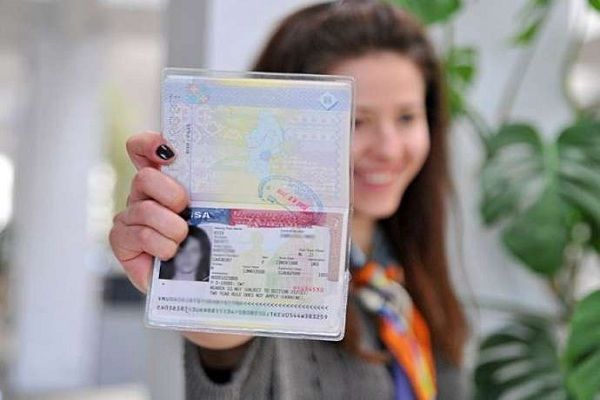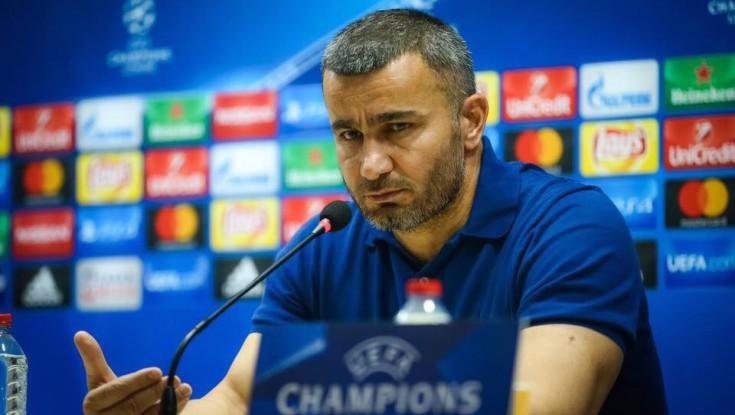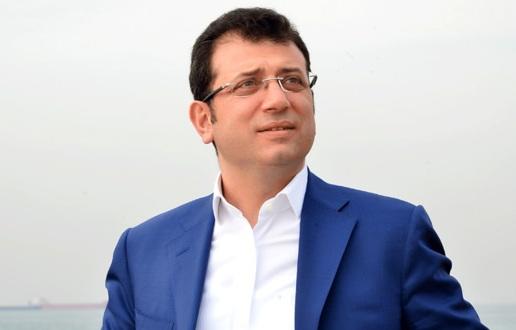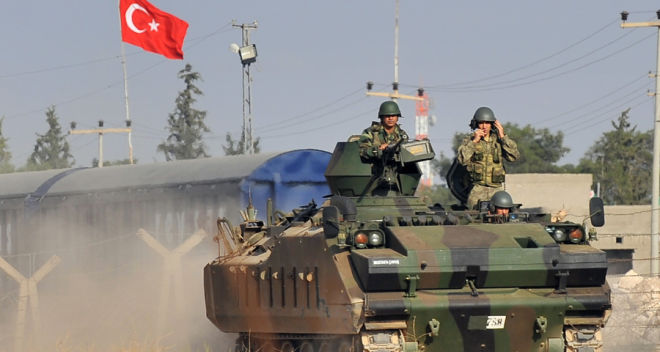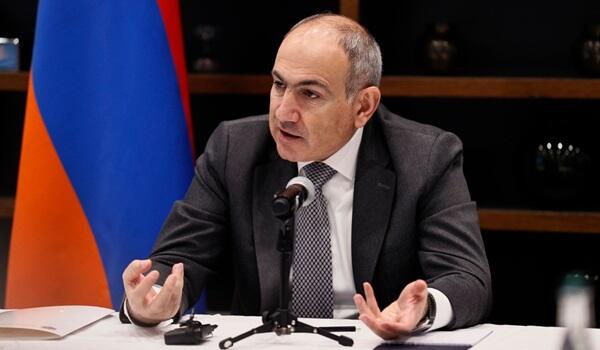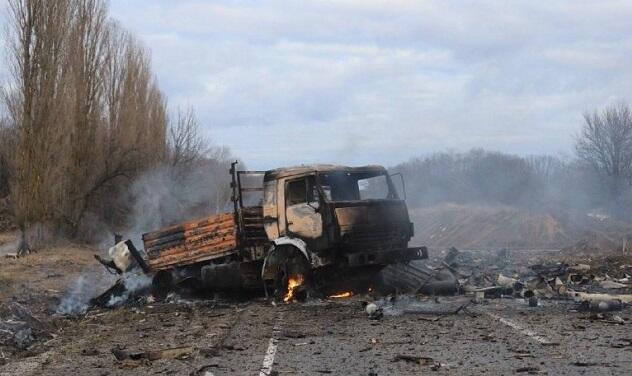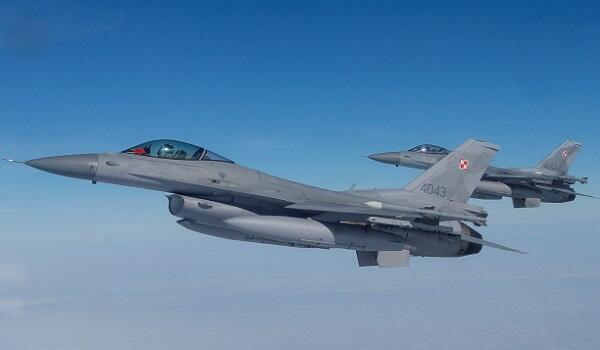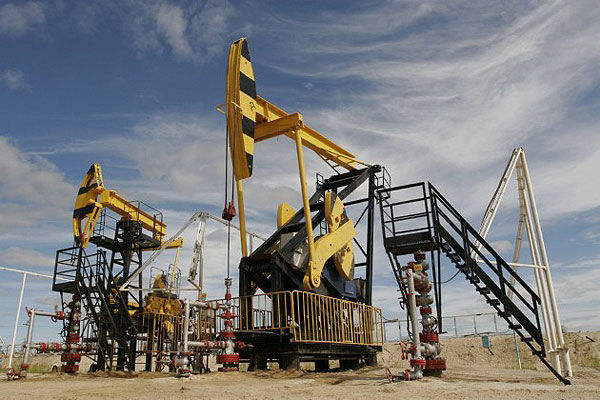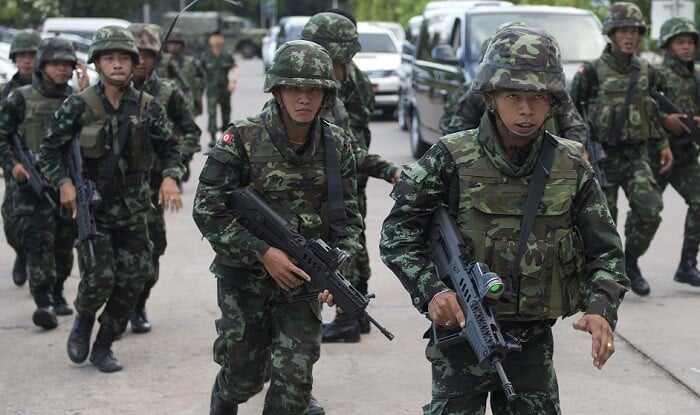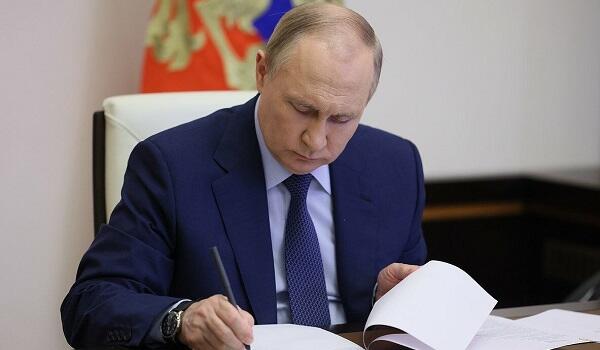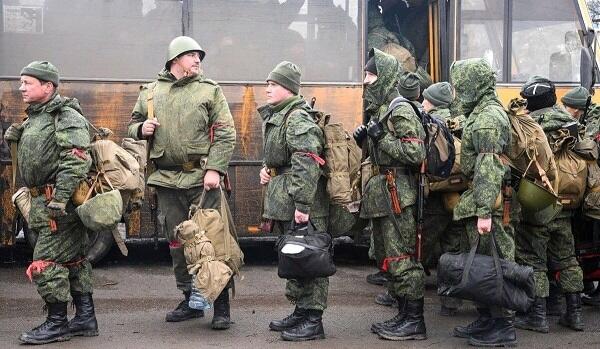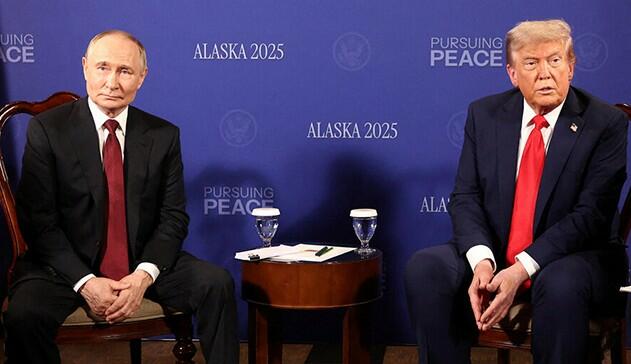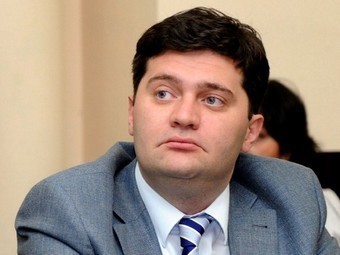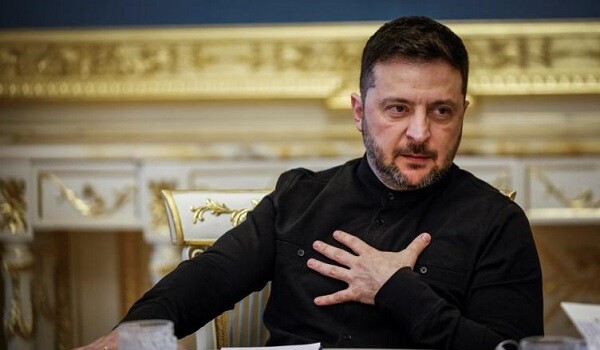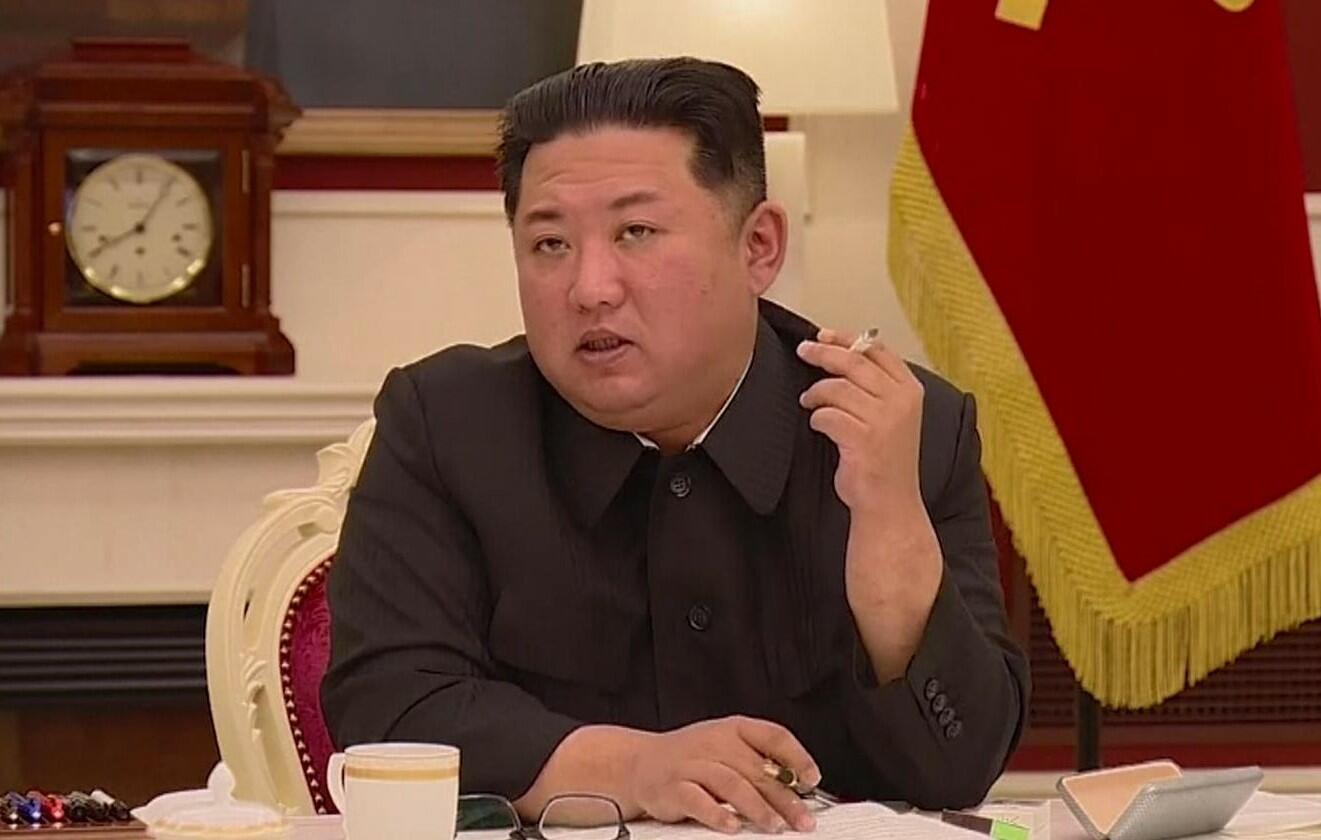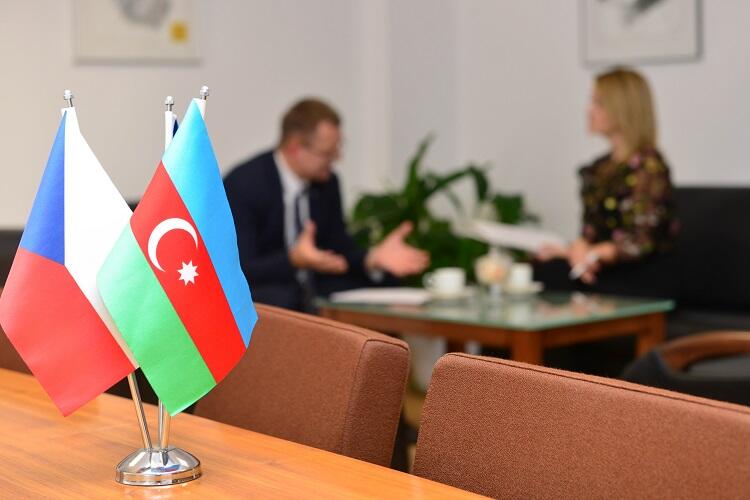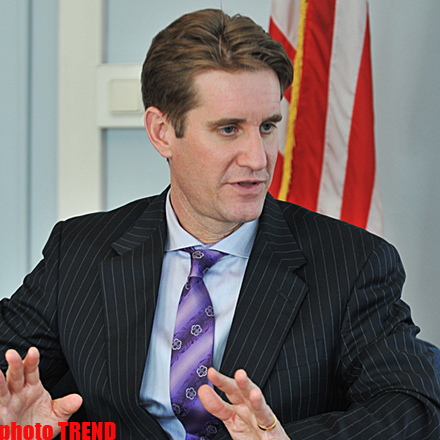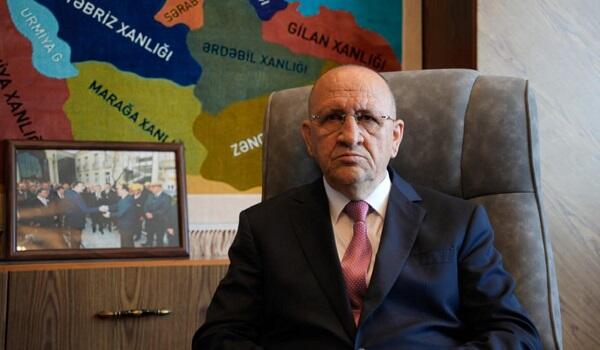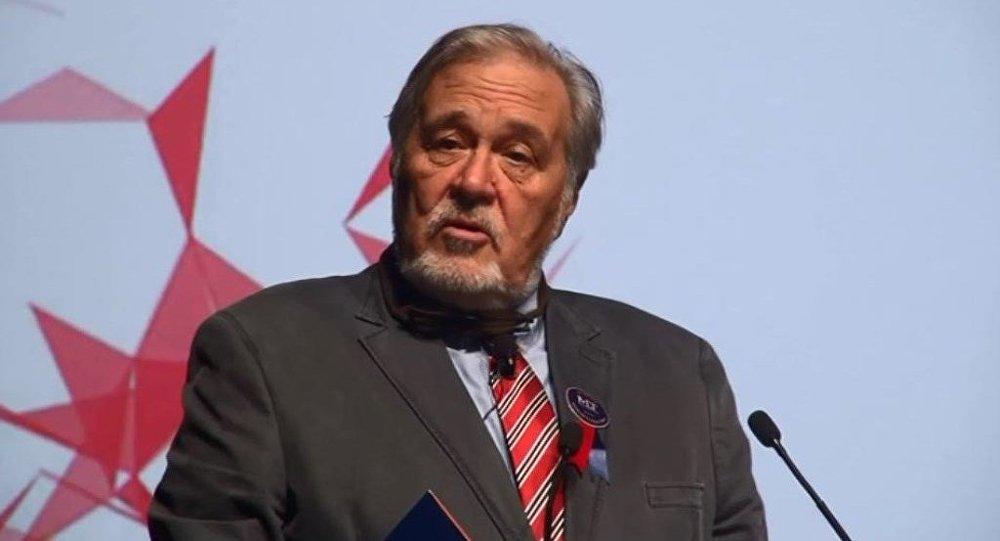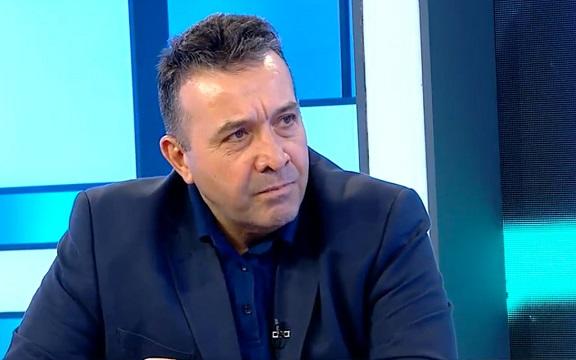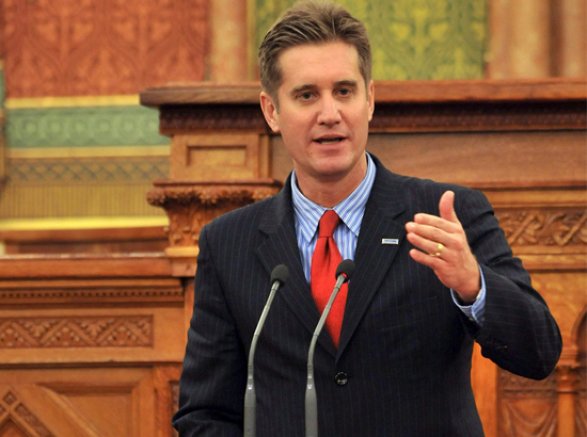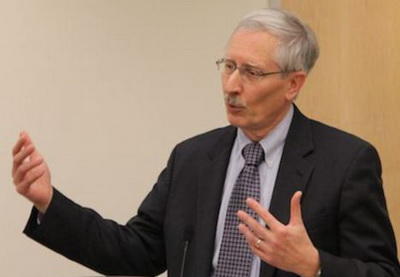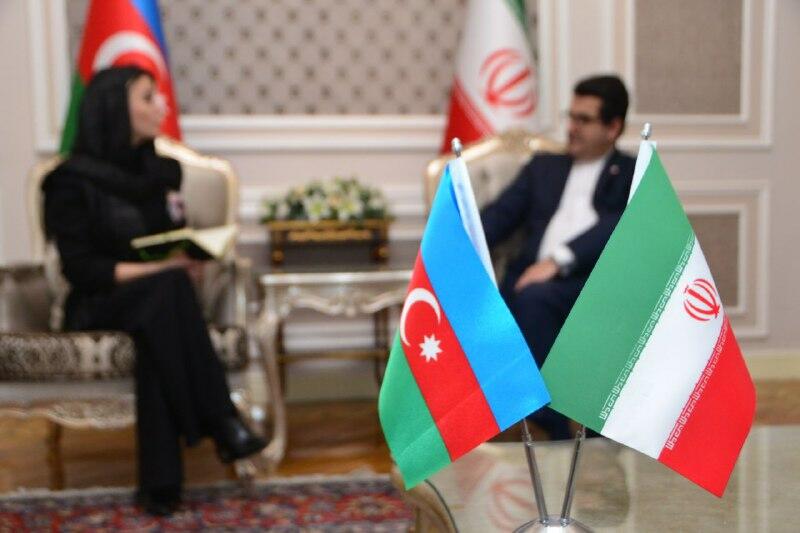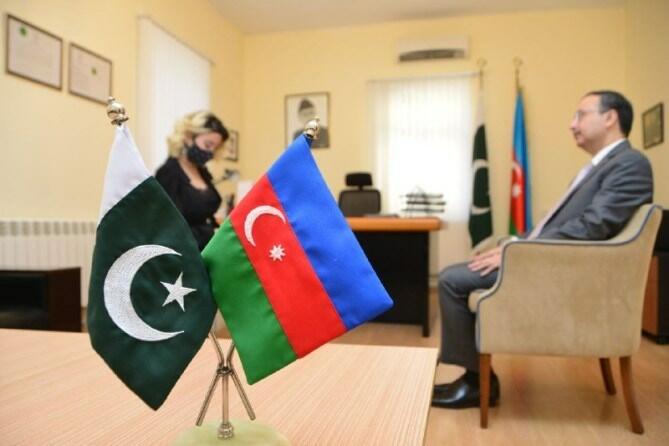Axar.az presents the interview with Extraordinary and Plenipotentiary Ambassador of Czech Republic to Azerbaijan Milan Ekert:
– Both Azerbaijan and the Czech Republic are situated in a complex geopolitical situation. Azerbaijanis live in the South Caucasus, and Czechs in Central Europe, at a crossroads. Everyone knows the complicated history of the Czech Republic. At the moment, your country is a member of the European Union and the development of the country is obvious. How can the Czech Republic balance this complex situation?
– Both Azerbaijan and the Czech Republic are middle-sized countries with populations of about 10 million inhabitants each; our country has about 78.9 thousand square kilometres while the size of Azerbaijan is 86.6 thousand square kilometres. Our independent states – the Democratic Republic of Azerbaijan and the Czechoslovak Republic which we are proud heirs to – were both established in 1918 and both developed in difficult, and often hostile, environments. Your country as well as mine have an experience with loss of independence and with foreign occupation. In these days, the Czech Republic is celebrating 30 years since the Velvet Revolution. That period was a turning point for the whole of Central and Eastern Europe, and a completely new balance of power in these regions emerged out of it. The security and prosperity of the Czech Republic, a middle sized Central European country with an open economy, has been reinforced by its entry into NATO 20 years ago and the EU 15 years ago.
– When Czechoslovakia split into Slovakia and Czech Republic, they split peacefully, showing the world a real example of peace. Unfortunately, the world failed to follow this example. How did you achieve this?
– In the aftermath of the collapse of communism, some countries, especially in former Yugoslavia, went down the path of violence fuelled the by nationalist egoism. The paths taken by Czechs and Slovaks after 1989 were, fortunately, different. As in all multinational states, the constitutive nations were not always happy with their share, economically and politically and ever since the Czechoslovak state was founded in 1918, there has been some frustration on the part of people in Slovakia with what they considered, sometimes rightly, as unfulfilled promises of the predominantly Czech political representation. Addressing some of the Slovak grievances, Czechoslovakia became a federal republic in 1969 but this was overshadowed by the more important fact of Soviet occupation few months before. The restoration of democracy and free speech after 1989 allowed for the relations between Czechs and Slovaks to be redefined on their own terms. Slovaks were ambitious, and I had sympathy for many of their demands at the time. The political representations in Prague and Bratislava that emerged from the 1992 elections decided that our ways will part, and started talks which ended up in the creation of two independent republics on 1 January 1993, and a peaceful and negotiated settlement of all issues including division of state property and border demarcation. It was a divorce and therefore a heart-breaking process, but it was a divorce among two adults aware of their responsibilities. In the end, the Czech Republic as well as Slovakia joined the EU simultaneously in 2004 and today we are again a part of a common economic space which is not divided by physical borders. Today, relations between Czechs and Slovaks are at their best point in history. We are very good neighbours and friends, and this has been made clear to me throughout my career as a diplomat.

– How would you describe the relationship between Azerbaijan and the Czech Republic in three words?
– Let me use two: we are strategic partners. As middle sized states, it’s not difficult for us to understand each other. And I think this is something valuable for the relations between the two nations. Religious and cultural differences have never been an obstacle for good relations between us.
– Azerbaijan and the Czech Republic have a long history of relations. What is the current state of this relationship, both economically and politically? Is official Prague pleased with these relations?
– I think the answer is very easy. A state signalizes that it has an interests in another country by opening an embassy there. When it comes to they key interests that come into play in the Czech-Azerbaijani relations, transport and energy supplies are key. One-third of Czech oil comes from Azerbaijan. That means each third car in the Czech Republic runs on Azerbaijani fuel. Thousands of Azerbaijanis travel to the Czech Republic every year to study, to make business or as tourists, exploring the beauties of our country and relaxing in Karlovy Vary and other spas. Having explored your country a bit, I have to say that the beauty of its nature and richness of Azerbaijani culture is astonishing so I think we must also do something about touristic movement from the Czech Republic to Azerbaijan. Generally, there is not enough information about Azerbaijan in my country. Very few Azerbaijanis speak Czech and the situation is even worse when it comes to the knowledge of Azerbaijani language among Czech people. A lot has to be done to change this, and this is a very important task for universities in particular.
– New Year is coming. Although one of the countries where Azerbaijanis prefer to travel to the Czech Republic, many are complaining about not being able to get a visa from the embassy. Is it easy to get a visa at the Czech Embassy?
– The Czech Republic is a very popular destination for Azerbaijani tourists as well as among people who chose to come to our country to work or study. That means there are many people applying for visas, and our Embassy staff do their demanding job under constant pressure. I admit the process is sometimes lengthy, especially when it comes to long term visas where the decision making process is in the hands of the Czech Ministry of Interior. Quite often, misunderstandings arise in the process as people come to their appointment without necessary documents, and some of them speak no languages but Azerbaijani. I therefore advise all people who want to apply for a visa to come well-prepared – often, it would be sufficient to read the information at the Embassy website in detail and call the Consular Section if some questions remain. When it comes to actual refusals, the numbers are quite clear: last year, our Embassy issued 4787 Schengen visas and refused to issue them to 241 Schengen visa applicants. I think this proves we are not overly strict.
– What kind of people does the embassy refuse in general?
– Some people present fake documents or provide information that is not true. My colleagues at the Consular Section are not naïve. They know their job. People should be honest while preparing the documents.
– In 2018, the trade turnover between our countries increased by 57% and exceeded $ 1 billion. By investing $ 2.8 billion in Azerbaijan, Czech companies participated in government projects worth over $ 1 billion as well. In your opinion, what steps should be taken to increase Czech companies' investments in Azerbaijan?
– We are among the top 10 economic partners of Azerbaijan. On one, the import of high quality Azerbaijani oil worth some 1 billion dollars a year is crucial to our economy. On the other hand, the volume of our exports to Azerbaijan is only about 70 million dollars. I met with my Kazakh counterpart today and he told me the volume of their imports to Azerbaijan is only about 220 million dollars. I was a bit surprised – I thought it would be more. As for the Czech Republic, some big projects are being completed – most importantly, this involves the construction work on the Baku-Tbilisi-Kars railway corridor by the Czech company Moravia Steel in a project insured by the Czech state. I am very proud that high quality Iveco buses produced in the Czech town of Vysoké Mýto are used in the public transportation system in Baku. There was a lot of investment in transport, infrastructure and energy and now we are looking for something new as the Czech Republic is striving to be a part of the modernization process in Azerbaijan. Projects in the sphere of ecology involve one by Czech company that concentrates on sanation of spaces polluted by oil production. The Czech Republic also supports the development of ecotourism in Azerbaijan. In our country, we have a very practical system of tourist trail marking – its history goes back to 1889. This year, our people trained Azerbaijani people including students, mountain guides and National Park staff to mark tourist trails in a similar manner in pilot projects, around the Xanbulan reservoir in the Hirkan National Park and from Talıstan to the Qaranohur mountain lake and Cavanşir fortress in the İsmayıllı section of the Şahdağ National Park. In the Czech Republic, four colours – yellow, red, blue and green – are used to mark tourist trails. When we introduced the system in Azerbaijan, we agreed with our local partners to limit the colours to those at your national flag – red, blue and green! The Czech Ministries of Industry and Trade and of Foreign Affairs as well as our Embassy as well as the CzechTrade office in Baku help facilitate Czech business missions: this year, the largest Czech business mission to Azerbaijan accompanied a delegation led by the Chairman of the lower house of the Czech Parliament. Another mission to Azerbaijan this year focused at the agricultural sector, and in September of this year, representatives of AZAL and SilkWay came to our country on a business mission in the sphere of aviation.
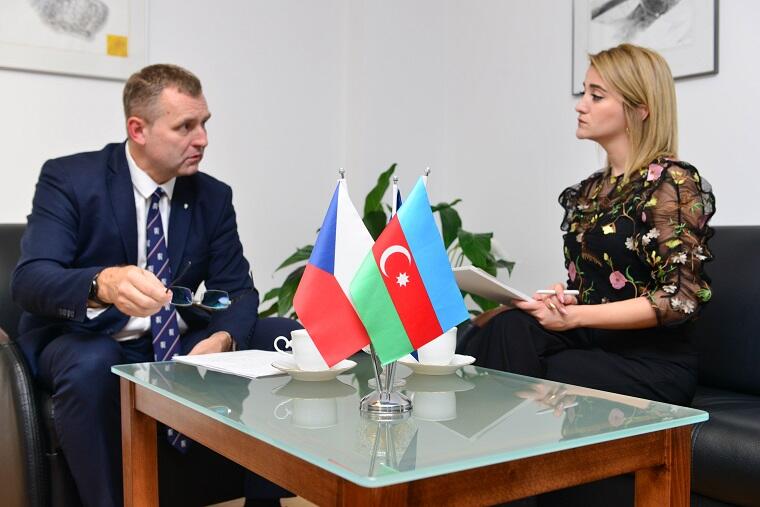
– After graduating from the Czech Agricultural University, you worked in that area of for several years. How did you decide to enter politics and diplomacy?
– In 1989, I was still very young. The enthusiasm of the time led many people into public life, and I was among the co-founders of the restored Social Democratic Party which only existed in exile from 1948 until 1989. It was in my blood, my father said that my grandfather was also a social democrat. I was elected to the parliament and stayed there for 10 years. And I was also elected to the town council in my hometown. It was an interesting time full of changes in our society as well as in the relations with our neighbours. Political life was very dynamic. I was a part of really interesting moments, including the vote on NATO accession in the Parliament and the process of joining the EU. I also spent some time as an advisor in the European Parliament.
By 2006, I was looking for something new, and it turned out to be diplomacy. As the former head of our mission in the Inter-Parliamentary Union, I already had some international experience, and I had the opportunity to meet interesting people, including the former Italian Prime Minister Giulio Andreotti who participated in the work Inter-Parliamentary Union as an old man after the end of his political career.
– What do you think is the main mission of an ambassador?
– The most important thing for all diplomats is to build up good relations between states. When diplomats are silent, guns start talking which is terrible. More generally, it is crucial to get accurate and objective information about the country where you are working and provide it to your own country, and it is not less important to maintain new links between the people from both countries and help create new ones. Lack of information is often at the heart of misunderstandings. While I was working in Ukraine and Belarus, many Czech people asked me about Russia, and I had to point out the huge differences between Russia and other post-Soviet countries. When I came to Baku last year, I initially felt a bit lost as the Azerbaijani language was totally new to me. I am trying to learn it but I know it will be hard for me.
– What is the biggest challenge you’ve faced since becoming an Ambassador?
– There are two examples. When I became Ambassador in Minsk, we refuse to pay rent for our diplomatic mission due to Belarussian debts. In the beginning, I thought there was no room to move forward but after some hard work, we managed to find a fair and mutually satisfactory agreement. Another episode dates back to January 2009 when our country assumed the Presidency of the EU Council and a crisis emerged due to the halt on gas supplies from Russia to Europe via Ukraine. Still a junior diplomat at the time, I was sent as a courier from Kiev to Brussels, carrying the text of the agreement that was about to resolve the crisis. In answering questions by the media at the time, President Putin mentioned that a courier is going to Brussels. I was the courier! People in many countries were freezing and I was very nervous as the plane from the Boryspil airport was late and I only had 20 minutes to change in Frankfurt. I managed!
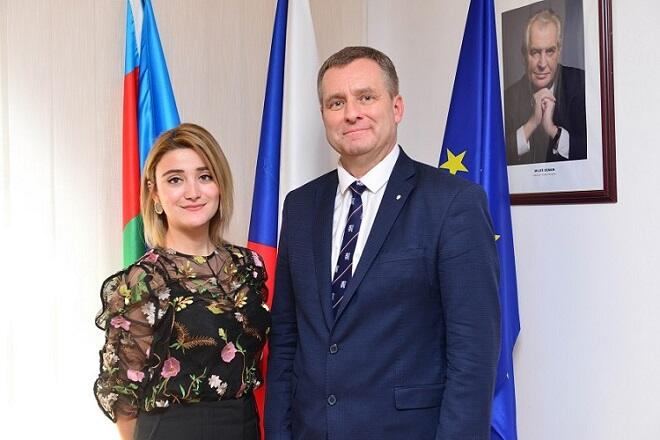
– You’ve been serving as the ambassador of the Czech Republic in Azerbaijan for one year now. Has your impression of Azerbaijan changed over this period, particularly from the expectations you had before coming to the country?
– I must say that Azerbaijan is a beautiful country with very amazing nature. There are very interesting places. I have been not only to Baku but to Shaki, Gabala, Lankaran, Astara, Ganja, mountains, deserts... It is an interesting mix of experiences and feelings. The beginning were not easy but now we are going forward and I think we have a lot of work here. And at the end of my mission, I want to be able to say that it was useful. One project that is particularly dear to my heart links us to the Şamaxı rayon where a village school in Qaravəlli was rebuilt by Czech companies in the framework of an “Energetically efficient school” project. Last November, the restored school in Qaravəlli was open by Deputy Ministers of Education of Azerbaijan and the Czech Republic. We cherish our cooperation with the Ministry of Education of Azerbaijan. I should not forget July 2019 when the UNESCO World Heritage Committee decided to add two more Czech sites – the Ore Mountain (Krušnohoří/Erzgebirge) Mining Region and the Ceremonial Carriage Horses Breeding and Training Landscape at Kladruby – to the World Heritage list at its session in Baku. This was widely reported by Czech media and our people are very happy about it as this were the first Czech additions to the list since 2003.
– If you could give advice to young people who want to become ambassadors, what would it be?
– Firstly, you should have a very good knowledge of history. Not just of your country but of the world in general. You must understand the basics of economy, sociology, and politics. You must be aware of new trends, monitor and evaluate opportunities and risks and provide high quality reporting and analysis to your home country.
